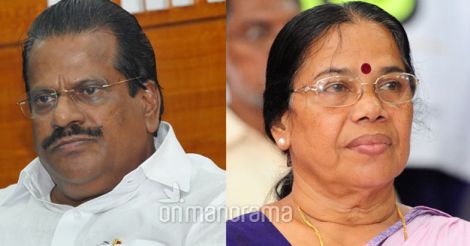It is not surprising that appointment of minister’s kin to a public sector enterprise and nepotism charges leveled against him has triggered a controversy in the State. If the state government has control and ownership over public sector enterprises then the appointments to this firm should be done in a transparent and legal manner.
According to 12th chapter of the Indian constitution, public sector enterprises come under definition of government or state and because of this, those in power should not make appointments to these institutions according to their whims and fancies.
Appointments flouting the standard norms to these institutions are against the constitution and have criminal implications as well. The chief minister and ministers should be aware of these two aspects and they are the ones who should be on their guard to avoid nepotism.
The Supreme Court’s Constitutional bench had given a verdict in the Uma Devi case in 2006 that there should be equality of opportunities in the matter of employment in public sector undertakings and in government institutions.
For appointments to these institutions the standards norms to be followed are that qualifications to the post should be decided beforehand and notified; the application from all candidates fulfilling the norms should be considered impartially; an independent and neutral mechanism for evaluation should be constituted and the appointment procedure should be done in a truthful and transparent manner and finally the results should be published.
In 2011 while giving the verdict in the Ramaswami case, a division bench of the Kerala High Court had made it clear that if there is any violation in the standard procedures for appointment to public sector institutions, the court can directly interfere in the matter.
In 2006, the supreme court (Surendra Prasad Tiwary case) had said that legal intervention can be done if appointments are not done in a transparent manner.
Appointments violating the standard norms had resulted in criminal procedures initiated against those in power.
It is worth remembering that a supreme court Bench comprising Justice Kalifulla and Justice Shiv Kirthi Singh upheld the verdict which gave 10 years imprisonment to Ajay Singh Chautala, the son of Haryana Chief Minister Om Prakash Chautala, in the teachers’ recruitment scam.
It is wrong to presume that only appointments made after accepting bribe comes under the purview of prevention of corruption act. Though bribery is a main form of corruption, nepotism and misusing official position for personal gains also comes under section 13 (1) (D) (III) of Prevention of Corruption Act.
Undue favors given, irrespective of whether it is done without accepting money, property or costly items, also fall under corruption.
The act makes it clear that if a public servant in his official capacity shows favoritism to someone against public interest then it comes under corruption.
If appointments were done without following the standard norms then it is against public interest.
Under these circumstances, the section of the prevention of corruption acts is applicable.
A bevy of writ petitions challenging this act is before the Supreme Court. One of these writ petitions has been filed by former Prime Minister Dr. Manmohan Singh.
To put it in a nutshell, a proper investigation should be done to see whether anything was done against the constitution which could be considered breach of oath.
This is to determine whether the person concerned was acting against the public interest and if his actions come under the purview of Prevention of Corruption Act. A thorough probe is necessary to find out the truth.

























 E.P. Jayarajan and P.K. Sreemathy are accused of appointing their relatives in government posts
E.P. Jayarajan and P.K. Sreemathy are accused of appointing their relatives in government posts